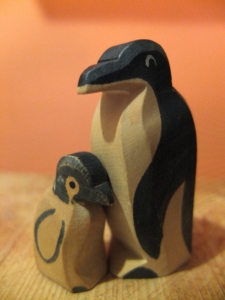Being a parent with BPD
As a parent you influence your child’s development through your everyday behaviour. Your child will observe and imitate your behaviours, so it is important that you explain the mental illness in a way that they understand that what they are experiencing with you is something they can talk about with you.
Explaining BPD to children under 5 years old
Infants perceive emotions at a literal level through facial expressions, tone of voice and simple voice. Therefore, they can make sense of your feelings from your behaviour but may not understand why you are feeling this way. To explain about BPD condition, you could relate to their emotional reactions and why they have them. By helping them understand their own emotions, you can help them understand that you have a “feelings sickness”. Remember to also reassure that you are working on getting better.
Explaining BPD to school-aged children
Children at this age range are more logical and reflective of what they perceive. Start with explaining about mental illness like physical illness then explain how BPD affects your ability to control emotions. Reassure that your feelings are of no one’s fault and you have special doctors to help you recover from BPD. Your child may want to offer help so suggest a drawing will make you feel better so they don’t feel helpless.
Explaining BPD to teenagers
Be prepared to have responses and evidence to questions teenagers will have. You could use the fact sheets here or even this site as reference while discussing mental illness. Look through the condition and issues together and explain how each affects your life. Reassure that when/if your symptoms occur that it is not their fault. Also discuss the available treatments and what you are doing to manage the difficulties. Let them know that you are on recovery.
BPD Stories
Click to read The Mighty – 5 things I wish others knew as a parent with Borderline Personality Disorder.
ROSE & HANNAH – Parenting as a single Mum with BPD (from BPD Awareness)
Project Air – Parenting with personality disorder
Want to learn more?
Read Out of the Fog article written by people who have experienced a relationships with family member or partner with BPD Talking to kids about personality disorders of other adults in the family.
Download American Academy of Child & Adolescent Psychiatry – Talking to kids about mental illness.
Australian BPD Foundation – Living with & parenting with BPD
Raising Children – Parenting with a mental illness
Resources
Children of Parents with a Mental Illness provides free booklets, guides, checklists and information sheets targeted to parents, teenagers, children and service providers in supporting a family in which a parent has experience with mental illness.
Go to Project Air Strategy information sheets about:
- Parenting with Personality Disorder
- How does Personality Disorder impact on parenting?
- Talking to children about Personality Disorder
- Connecting with children at different ages
- Understanding and responding to children’s feelings
- Strengthening Attachment: for parents and caregivers
- Mindful parenting during child play time
- Creating safety: setting limits with children
- What else can I read?
ANNALEISE – The resources that Project Air offers for parenting.
Online courses
Babies in mind: Why the parent’s mind matters
The University of Warwick offers a free online course aimed at everyone who has an interest in promoting the well being of their own baby, or the parents and babies they work with. You do not need any prior knowledge of infant or child development, just a desire to learn about parents and babies, and the way that early interaction shapes later development. The course is based on the latest research in the field and you will be introduced to key concepts relating to infant psychology and attachment.
Mental Health’s Professional Network (MHPN)
MHPN provides free access for everyone to it’s webinar library covering a range of mental health topics from BPD and supporting people living with BPD to drug use, eating disorders, collaborative care, workplace, trauma, family, etc. Each webinar hosts an interdisciplinary discussion panel and provides resources of readings and slides to invite the audience to raise questions at the end of session. To register to participate in an upcoming live webinar click here.
Children’s Books
Listed below are links to list of books that may be helpful in explaining BPD of a parent to young children. Many of these do not actually specific mental illness, but use analogies children can understand.



